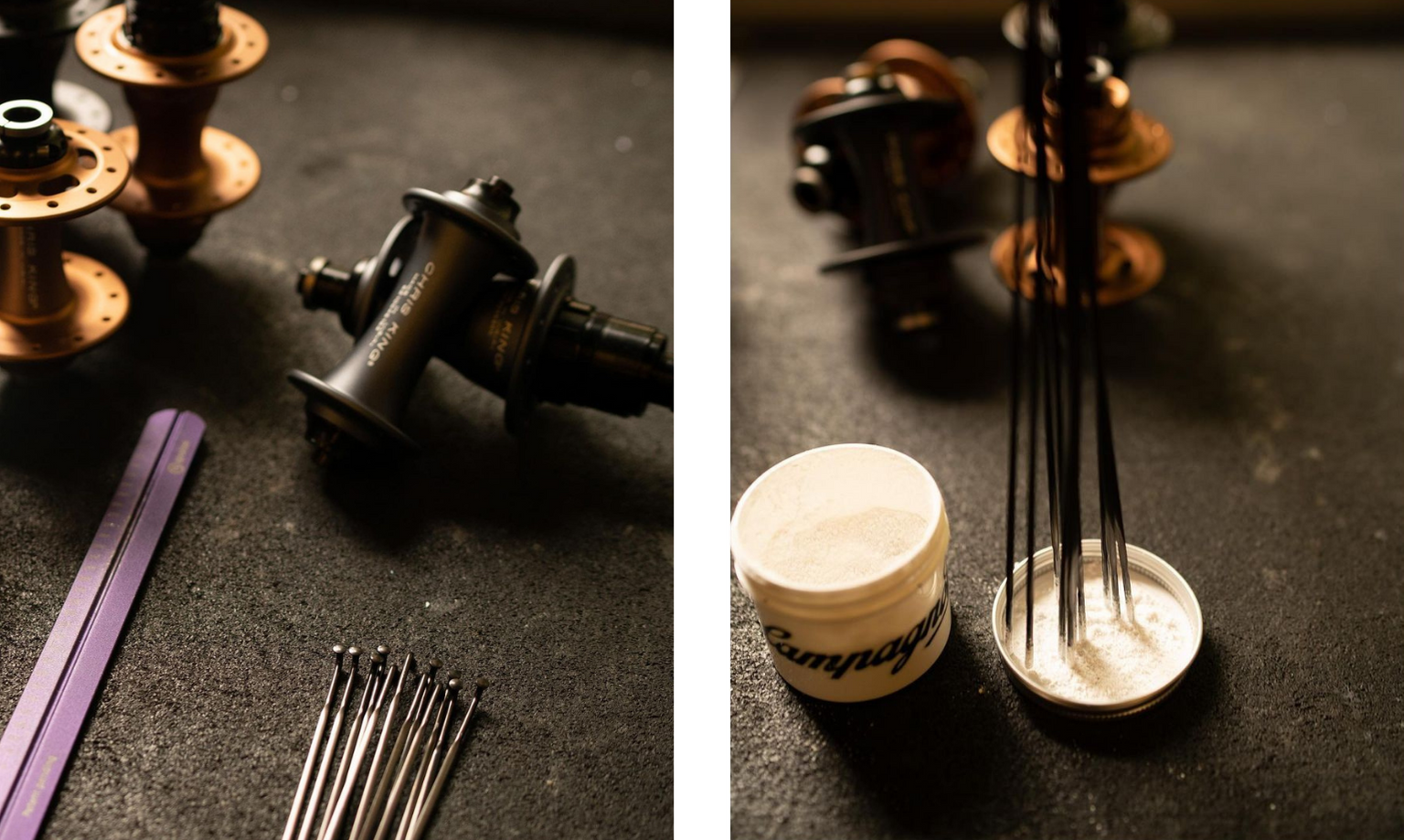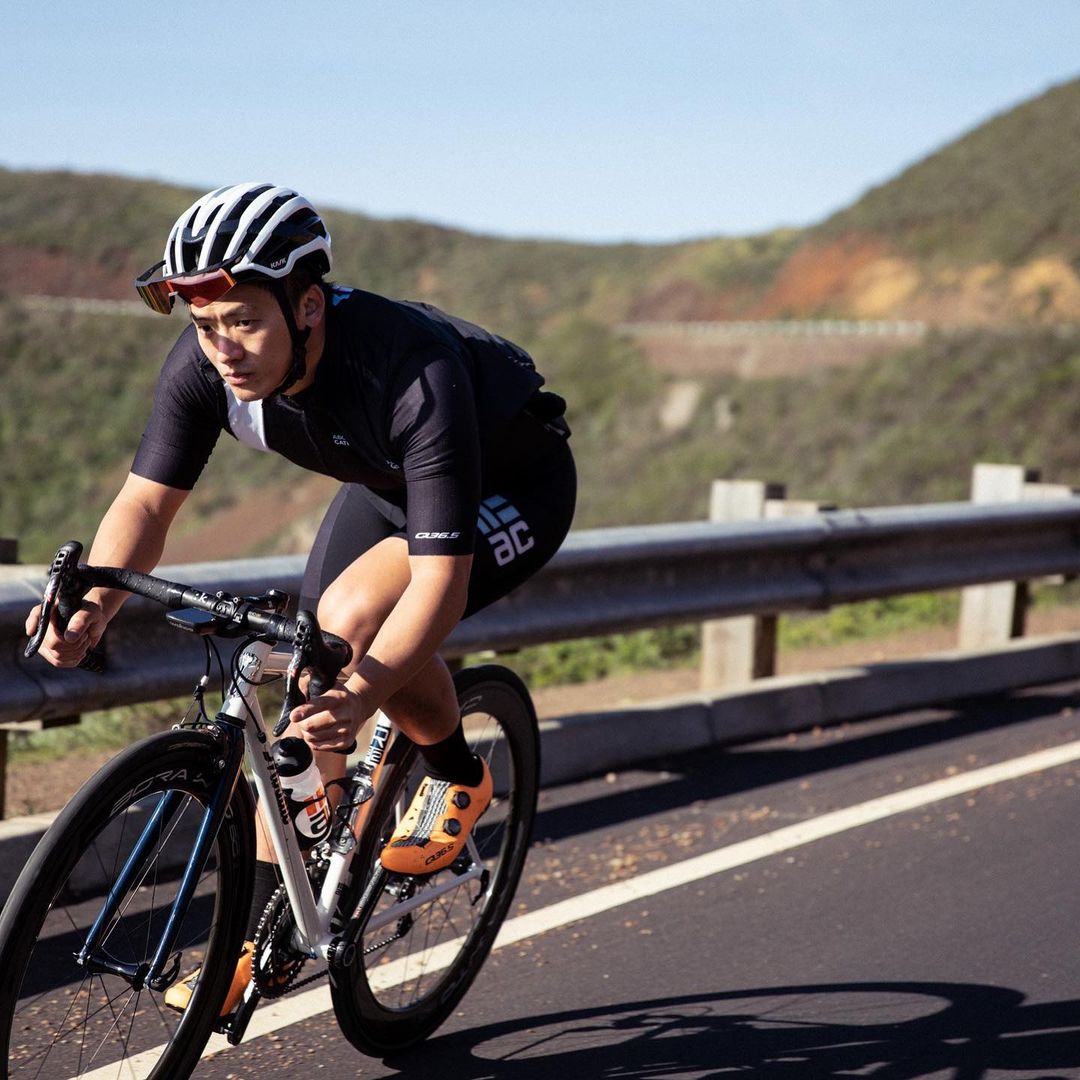
Robert Gee is not your typical bike mechanic. Following in an uncle’s footsteps is a rare career trajectory. Yet, Robert has forged a path for himself in the cycling industry, having worked on the road, and traveling across the states and to Europe. He has found solace as the head mechanic at the premier cycling boutique, Above Category. Robert is meticulous, careful with his words, and creative in his expressions. In this second iteration of ILE Talks, we step into Robert’s mind and profession.

Robert, what influence did your Uncle Vincent have on you?
That’s where it all started. His connections were my foot in the door to the cycling world. I was working a retail stock room job and one day he called and asked, “do you want a job at the bike shop I used to work at?” My uncle had worked at that shop in the 80’s and I thought it’d be so fuckin rad to follow in his footsteps. I dropped everything and started sweeping the floors at The Bicycle Business (TBB) in Sacramento, California in 2010. They started showing me little things from brake adjustments to assembling single speed bikes. Uncle Vince would stop by the shop from time-to-time to offer guidance.
My grandfather Harry Gee was such a meticulous person with some traits that I see in my uncle. Their influence included doing things slow and proper the first time, instead of rushing and having to later re-do the work.

Would you describe it as an apprenticeship?
Well, in the early days of me working at TBB, uncle Vince knew that the owner of TBB had good foundations that would create good work habits for my future.
TBB was running an online tune-up special when I first started and this was the turning point of my hands on learning curve. I definitely stripped, broke, and snapped a lot of shit during this time. The shop is located across from a high school on a busy street, so we saw a variety of bikes in the service center. I think this period of time was my opportunity to build a foundation for the basics. It’s easy to replace parts, but when the high school kid only has five bucks to his name, then you make that shit work as best as possible.
This foundation building would include my least favorite part: confidence in talking to customers. My uncle always said that communication is one of the most important tools in my arsenal.
Over time, uncle Vince saw small windows to test me out and apprentice under his wing. One of my first tasks was to remove every bolt and grease every thread on all the home bike SRAM group sets. Then, organizing the alloy rim brake pads from the carbon pads. Next, installing Thule roof racks on the Twenty16 team van. Eventually he had me wash bikes at a team camp. I met Barry Bonds during this trip which I thought was pretty rad. This was followed by washing bikes at the Redlands Classic and San Dimas Stage race in SoCal & having my first jumping experience in a SRAM Neutral Service car.



What’s something that people get wrong about mechanics?
We’re not all dirty stinky mechanics! I promise
But for real, a misconception is that mechanics are trying to rip folks off or upsell product. When I was just starting off, I would hear something like, “my bike is new, it can’t be worn out”, but in reality, that “new bike” was purchased three years and 40k miles ago.
Everyone has a different perception of the term “worn-out.” I get it, but I’m not going to up-sell you, I’m no sales person. I do tend to think that the flagship model of a brand tends to function better, but I won’t force it on anyone.
At AC, our goal is to have the highest standard of clean, smooth, and functioning bike leave the center for our clients. If I make a recommendation on a service, it is truly because the bike needs it. We are not half-assing anything, and our meticulous standards are what keeps us in the destination shop category.

How do you navigate the tension between the cyclist and yourself?
I try to be straight up with people. I want your bike to work safely. The main goals of the mechanic are rider safety followed by a smooth functioning machine.
I don’t really get tense interactions with clients, but if I were to navigate a rider who’s pissed that their bike isn’t working 100%, I think it can be simplified to calmly explaining common patterns of service in a constructive way to let them know we are going to find a solution. Last year, I jumped on quite a few video calls to assist our clients with service questions.
I think this skill comes with time and experience working on the bikes. I’d say calm communication is key along with feedback to our vendors regarding what the clients are experiencing.

Is storytelling important to a bike mechanic?
Yes, I think it is important to me and I find the unseen hustle as an attractive role. On a team or in the shop, mechanics are often dubbed the unsung heroes. There’s so much hustle behind the scenes to deliver that finished product for the rider.
Having worked for Above Category the last three years, I’ve seen a lot of exotic frames and paint jobs, each unique to their owner and each with their own story.
Derek and the AC crew have a way of conveying client build stories though our journal posts and photography. I’ve always had fun dabbling with photography. For bikes I photo, I’m sticking the chainring in the big ring and the third cog from the top. I do this because this is the gear we’d set the spare bikes in during the crit pits or the spare bikes on the roof rack. The rear derailleur is flexing to show off any OSPW or Ceramic Speed pulley color. Valves are always at six o’clock and tire logos are always opposite the valve as to be legible.
Next time you zoom in on one of our journal posts, note the cable housing lengths and logo placement, bar tape wrapping direction and finish tape cuts, and trimmed down barrel adjusters. I feel like a barber in a sense, trying my best to create a symmetrical look and to leave only the necessary.
I wash every bike before I work on, along w/spec’ing the bike out in my little black note book. No detail is overlooked. Only clean bikes go into my stand. That’s why my hands are pretty clean for a mechanic. Bikes tend to work better when they are clean. I think that’s true with everything in life.

What advice would you give to someone who wants to be a bike mechanic?
Explore. Before I worked in a shop, I was taking stuff apart in my parents’ garage—bikes I found in junk piles and radios that were on their last leg. I didn’t even know how to put the shit back together, but it was just fun to tinker. Someone who wants to be a bike mechanic needs to ask questions with the freedom to make mistakes. A lot of information is on the internet, but for me nothing can replace hands-on learning. Also, learn how to use a torque wrench; you will thank me later.

Do you ever have people that botched their own repairs?
Ha-ha yes, and we should charge extra for the un-botching, but it is what it is. I don’t like putting people down for wanting to tinker with their own bike. Working on bikes isn’t their full-time job. Some of our clients are surgeons, tech folks, or business owners.
My response: this is my livelihood. You’re better at surgery or developing the next IG, and I’m best as a mechanic.
In some shops, mechanics will talk down to their customer. I don’t think anyone appreciates being talked down to. Where I’m at, you never know who is walking through the door.
So, all in all. Slow down, be kind to everyone and remember to stop and smell the roses.
Photography by: Robert Gee & Derek Yarra




